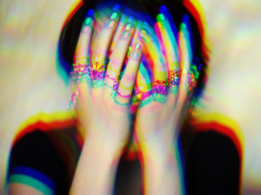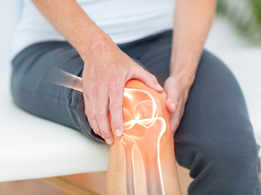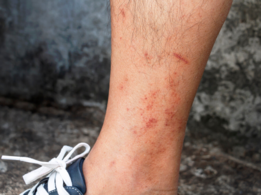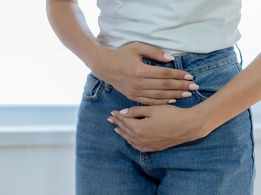Coronavirus: First case of COVID-19 reinfection confirmed in Hong Kong; here is what it means
TIMESOFINDIA.COM | Last updated on - Aug 25, 2020, 12:10 ISTShare fbsharetwsharepinshareComments (0)
01/8First case of COVID-19 reinfection confirmed in Hong Kong
)

A 33-year-old techie from Hong Kong has become the first-ever confirmed victim of COVID-19 reinfection.
The news confirms what many scientists and medical experts have been worried about for a while- about COVID-19 infecting a person again and the duration COVID antibodies could last.
(Image used for representational purposes only.)
02/8Can a person catch COVID-19 more than once?
)

The young man's reinfection proves that COVID-19 immunity, unlike what was speculated, may not last long. The looming problems surrounding reinfection are only pointing out what a big threat COVID-19 really is, with high chances of the infection becoming worse during the winter season.
03/8Here's what we know so far
)

The 33-year-old Chinese man found himself reinfected by the SARS-COV-2 virus roughly four months after being infected for the first time. His first bout with the infection happened in early April this year. Even though there have been other reported cases of people catching COVID twice, or still having a considerable viral load in the body, scientists say that the 33-year-old is the first confirmed case of reinfection worldwide.
The resident's second COVID-19 test came positive via airport screening while he was returning to Hong Kong post a trip from Europe, where infection cases are starting to soar once again.
04/8The 33-year-old had no symptoms
)

Experts also found a wide range of difference in his symptoms and diagnosis, from the first time around.
The man, who is employed in the IT sector did not suffer from any "recognizable" symptoms or could have remained asymptomatic for long. The 33-year-old's age and otherwise healthy parameters also suggest that COVID reinfection could strike anyone and not just the ones at a higher risk.
Researchers from the University of Hong Kong used a genome sequence analysis to find out that he, had been infected by two different strains of the virus. This comes after news of finding a 10 times more infectious COVID-19 mutation in Malaysia, which could mean potential bad news for the world.
05/8COVID-19 could persist for a long time
)

Since the person under question did not develop any typical symptom or showcase signs of worsening, scientists say that the new strain could mean the infection is milder, something which can happen with viral mutations. However, scientists do say that the case presents emerging evidence that SARS-COV-2 could persist in humans for a longer time.
“Our findings suggest that SARS-CoV-2 may persist in humans," researcher Kwok-Yung Yuen and colleagues mentioned in a paper which has been published in the journal, Clinical Infectious Diseases.
06/8Could COVID-19 keep coming back like the common cold?
)

There are emerging reports that authorities received another case of re-infection after the 33-year-old, whose name has not been disclosed yet. No confirmation suggesting transmission or severity have been made as yet. Researchers also warned people to not "jump to conclusions" until further studies are done.
Even though for months, there has been evidence of reinfection, scientists weren't able to figure out the exact cause of reinfection, until now, which is the first documented case. Earlier cases were dismissed as the existence of viral load in patients even after recovery or continuation of symptoms, dubbed as "Long COVID".
Researchers also say that the new evidence might showcase how COVID-19, much like the common cold could continue to stay in circulation and infect humans, despite people gaining sufficient immunity to the infection from vaccination or naturalization.
07/8How long does COVID-19 immunity last?
)

While a healthy person does gain antibodies to fight off the infection naturally, scientists have been doing several studies for weeks to find out how long do antibodies last. A recent study done by King's College, London suggested that antibodies start to wane in recovered patients anywhere between 3-4 months, meaning that immunity might not last for long. Other peer-reviewed studies, however, suggested that depending on the severity of the infection, a person could have immunity which could last anywhere between six months to a year's time. New research also found that people with the mildest infection could have strong bouts of immunity.
08/8The future of COVID-19
)

As Hong Kong researchers say, a lot more research will be needed to conclude the effect of COVID-19 immunity and reinfection. Till then, social distancing, strict measures, sanitation and other healthy practices should be continued to be adopted.


































































![[Gym] Leg Training (voice-over with tips)
[Gym] Leg Training (voice-over with tips)](https://static.toiimg.com/thumb/77056786.cms?width=147&height=86)
















closecomments
SIGN IN WITH
FacebookGoogleEmail